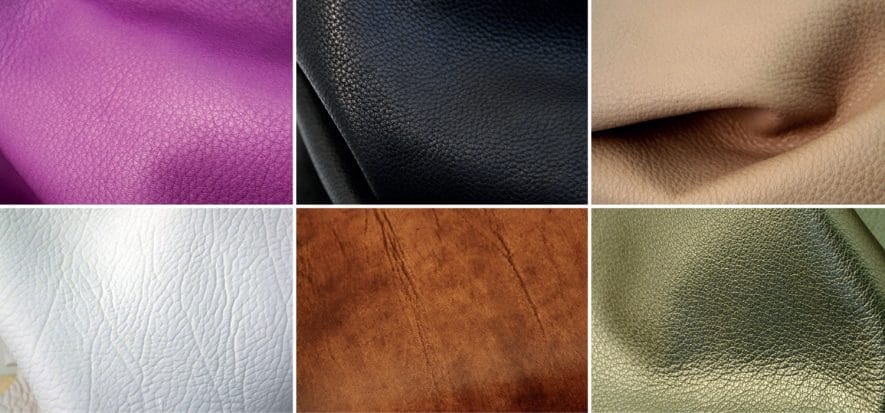The die is cast. The Leather Decree has been formally and definitively approved by the Italian Government on last 28 May 2020. Unanimous consensus, all over the world, welcomed the news, which is quite an accomplishment achieved by UNIC – Italian tanneries: as emphasized by President Gianni Russo, “we are very proud of such success”. Likewise, the whole of leather industry expressed its approval. While waiting for the publication of the law on the Official Journal, they are now about to deal with an emerging need. In other words, to understand, briefly, all the details, including prohibitions, penalties and further implications related to its implementation.
Unanimous consensus all over the world
In Europe and all around the world, they unanimously welcomed and approved the Leather Decree, both from an institutional and media point of view. Such overall response evidences, then, that such decision was not only a necessity, but also an urgency. As remarked by a few other national associations of tanners, the approval of the Leather Decree proves to be extremely relevant in Italy today, as if it switched on a “meaningful” light in the middle of the current situation, deeply upset by the pandemic. Several countries, such as France, Germany and the United Kingdom, have praised UNIC for their smart and valuable action. Besides them, Portugal, China, Taiwan and Turkey, among others. As reported by Mike Redwood on ILM portal, “we have to congratulate Italy on such clever work and celebrate this accomplishment. We therefore encourage some more leather tanning associations to act likewise”. Not only aiming at safeguarding, but also moving towards a highly competitive transparency, as much as possible. In other words, forcing leather competitors to provide a plain description of their materials, just the way they are, without any misleading terms, which must not pertain to them.
A few terminological details
While waiting for the publication of the law on the Official Journal, let us briefly spotlight the Leather Decree. For example, it provides the definition of pelle/cuoio (that is, leather), drawing inspiration from European Union regulations, as “materials, made from the skin of an animal, that have conserved their original fibrous structure and have undergone a tanning process, in order to prevent their decomposition”. Moreover, it defines full grain leather as a “material that still has its original grain, which is visible right after skin removal, without the disposal, though, of any surface layer through de-graining, fleshing or splitting”. It also specifies that “cuoio rivestito (coated ) is a product made of leather where the surface coating or the glue bonding are higher than 0.15 mm, but do not exceed one third of the total thickness of the product itself”. In addition, it explains that the rigenerato di fibre di cuoio (leather fibre board) is “a material deriving from the scraps of tanned leather that have been disintegrated, either mechanically or chemically, into fibrous particles, subsequently transformed into sheets: the fibrous content must account for 50%, at least, of its total weight”.
Prohibitions and mandatory compliance
The Decree “prohibits launching on the market and making available products and objects that, in non-compliance with the above mentioned definitions, make use of the following terms (not only in Italian, but also in other different languages): specifically, leather, full grain leather, coated leather, fur and leather fibre board”. Besides that, the same prohibition further applies to “adjectives, nouns, suffixes and prefixes of other words”. In example given, among others: leather goods, hides, skins, eco-friendly leather, wineleather (vegetable leather) and synthetic leather, and so on (such list might go on endlessly, unfortunately). Moreover, “both manufacturers and importers, who want to use the above-mentioned terms and apply them to materials or objects, formerly launched on the market, will have to comply with another mandatory regulation: labelling obligation”. On top of that, tags and labels must be “durable, easily legible, visible and accessible”.
Penalties and fines
“Chambers of Commerce and Customs Office will check and ascertain any violations if products are released for free circulation; otherwise, as to law cases, Finance Police will be in charge”. Violations may subsequently lead to the following penalties and fines:
- 3,000 to 20,000 euros for missed Manufacturer/Importer tags or labels;
- 1,500 to 20,000 euros for Manufacturer/Importer improper labelling;
- 700 to 3,500 euros for making available on the market materials without the Supplier tag or label;
- 3,000 to 20,000 euros for Manufacturer/Importer product composition non-compliance;
- 700 to 3,500 euros for Supplier product composition non-compliance.
Read also:
- Leather Decree: Gianni Russo (UNIC) “Proud of this achievement”
- Italy’s Council of Ministers approves the “Leather” decree











